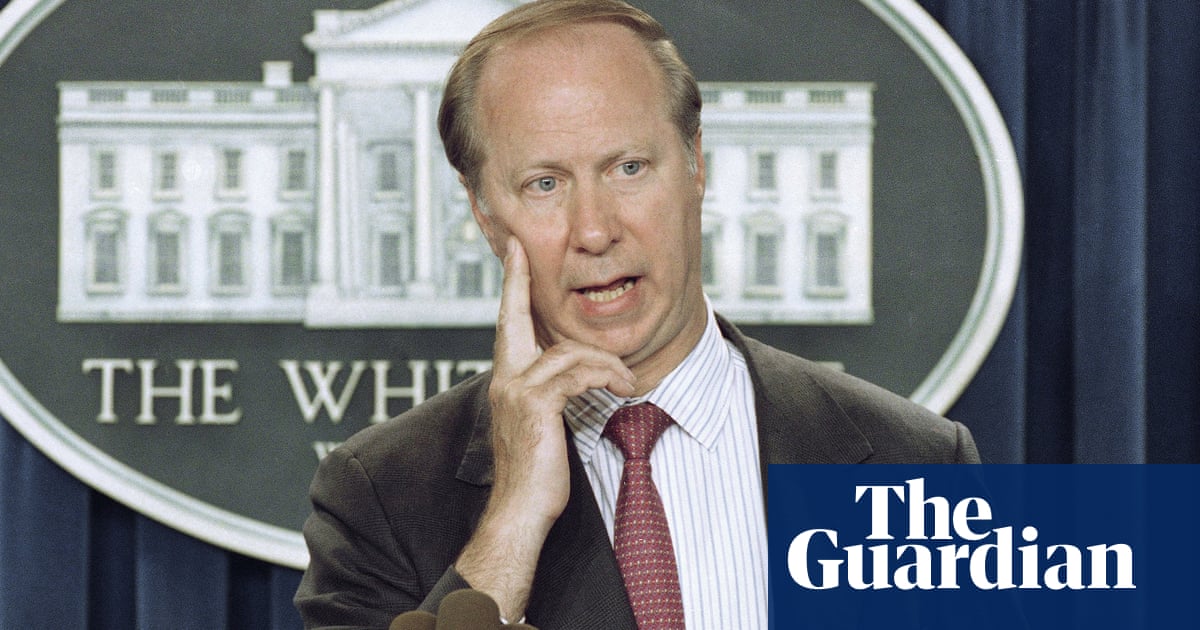SAVANNAH, Ga. — Democratic Sen. Jon Ossoff stood before hundreds of potential voters Saturday to deliver what he called “a report from our nation’s capital” a half-year into President Donald Trump’s second term.
How voters react in Georgia, which has taken center stage in the Trump era as a key battleground state, could help determine how the final two years of Trump’s presidency go — and how (or whether) Ossoff’s young political career continues.
“It turns out that when Donald Trump said he was going to fight for working-class Americans, what he really meant was he was going to take away your health care to cut taxes for the rich,” the first-term senator told voters wielding American flags and Ossoff for Senate memorabilia at a rally in Savannah, Georgia.
A rally with more than 300 potential voters for Sen. Jon Ossoff, D-Ga., in Savannah, Ga., on Saturday. (Adam Kuehl for NBC News)
The message from Ossoff, delivered at the second major event of his 2026 re-election campaign, was clear. He cast Trump’s signing of a massive Republican spending bill to fund much of his agenda, dubbed the “Big Beautiful Bill,” as deeply revealing of his priorities — which the Democrat said aren’t about making life easier for the working-class Americans that helped power his presidential campaign.
In a state Trump narrowly won, Ossoff crafted his anti-Trump message over the course of an hour by ticking through what he called the “broken promises” of Trump’s administration — a list that included the Department of Justice’s decision not to release additional files related to the death of Jeffrey Epstein, after Trump allies in his Justice Department had stoked conspiracy theories about the case in recent years.
But mostly, Ossoff’s “report” illustrates how Democrats want to weaponize the GOP’s massive spending bill, which is expected to add trillions of dollars to the national debt, more than a year out from the 2026 midterm elections.
“We were told Donald Trump’s new GOP cared about working people,” Ossoff, 38, said. “You can’t claim to be for working men and women when you defund their hospitals and nursing homes.”
A rally for Sen. Jon Ossoff, D-Ga., in Savannah, Ga., on Saturday. (Adam Kuehl for NBC News)
A rally for Sen. Jon Ossoff, D-Ga., in Savannah, Ga., on Saturday. (Adam Kuehl for NBC News)
It’s a key part of the Democratic strategy in both the House and the Senate, where the party will have to win four seats to retake the chamber. Few if any states are as important to that mission as Georgia, where Ossoff is the lone Democratic senator running for re-election in a state won by Trump.
The Georgia incumbent’s message comes as Democrats work to recover from record-low ratings for the party and engage a voter base eager to hear the party’s plan to counter Trump.
“I want more visibility. I want them to speak and say this is not what we want and this is how we’re going to make changes,” said Stacey Michael, a Savannah resident and a veteran. “Don’t leave us blindly wondering.”
“Don’t leave us blindly wondering,” said Stacey Michael. (Adam Kuehl for NBC News)
Georgia’s role as a political bellwether has sharpened in recent years, with the deeply polarized state voting for the winner of the last three presidential elections and helping determine control of the Senate after 2020 and 2022. The Southern battleground served as a beacon for Democrats during and immediately after Trump’s first term. They lauded victories there as proof that Trump turned off moderate voters and that Democrats were surging in a state with a decadeslong history of supporting Republican candidates.
Now, the party will look to Ossoff to determine if Democrats’ run of wins in federal races before Trump’s 2024 showing was, as Republicans argue, an anomaly fueled by the Covid-19 pandemic — or whether Georgia is a truly purple battleground.
Winning another term would require Ossoff to reverse the trends that powered Trump’s victory last year: higher turnout among Republican voters, marginal shifts rightward in Democratic strongholds and waning enthusiasm among core Democratic constituencies. One Georgia-based political scientist said Ossoff’s re-election, while possible, will be an uphill battle.
“Georgia is still more competitive than it was in the mid-2000s but the fundamentals of the state still privilege Republicans,” said Andra Gillespie, an associate professor of political science at Emory University.
And Ossoff voters agree that he’ll have to make an effective appeal to the state’s Republican constituency to win.
Retired schoolteacher William Heard. (Adam Kuehl for NBC News)
“We got to get better at winning elections and getting the message out and compromising on the issues that we’re arguing about amongst ourselves. We’ve got to really get better at that,” said Savannah resident William Heard, a retired schoolteacher.
The demographic shifts powering Georgia's battleground status
Georgia’s competitiveness, Gillespie said, stems from its demographic mix. Black people make up roughly a third of the overall population, according to census data. But unlike neighboring Southern states with large Black populations, Georgia, over the last decade, has also seen significant increases in its Latino and Asian American populations, other groups historically more likely to support Democratic candidates — though Republicans made inroads with each of those groups in 2024.
And while most Black voters again supported Democratic candidates in 2024, they did not turn out at the same rate as white Georgians, according to analysis by the Brennan Center.
Meanwhile, three of the four largest counties in metro Atlanta, Democrats’ most important source of votes in the state, shifted rightward last year.
A New York Times analysis of election data shows that while Democrats did gain in some of the outer suburbs, Fulton County, the home of Atlanta and Georgia’s most populous county, saw a 1.5-point shift toward Trump compared to 2020. Gwinnett County, the state’s second largest, saw a slightly larger shift toward the right, while DeKalb County, the fourth-biggest county, saw a nearly 3-point move.
Behind that shift was an effort by the Republican chairs of the metro Atlanta counties to reactivate what they described as a quiet Republican constituency in the overwhelmingly blue region. In coordination with the Trump campaign, the county chairs used data analytics to target low-propensity conservative voters in the region with door-knocks, digital ads and high-profile surrogates, like current FBI Director Kash Patel and Lara Trump.
Sen. Jon Ossoff, D-Ga., at a rally in Savannah, Ga., on Saturday. (Adam Kuehl for NBC News)
Sen. Jon Ossoff, D-Ga., at a rally in Savannah, Ga., on Saturday. (Adam Kuehl for NBC News)
Though then-Vice President Kamala Harris still handily won the counties, Marci McCarthy, the former chair of the DeKalb County Republican Party, said the results of the election indicated their efforts were successful.
“We have made inroads, and Democrats have had to take us seriously, quite frankly, because we’re making them work harder in a place that they never thought they’d have to ever work in to begin with,” she said.
McCarthy, whose work leading the DeKalb County GOP was so lauded that she received a political appointment in the Trump administration, said local Republicans “caused a lot of chaos” for the state Democratic Party. At the very least, they created a permission structure for disillusioned Democrats and independents to support Trump.
Now, Senate Republicans are trying to build on that. Recent ads from One Nation, the nonprofit group aligned with Senate GOP leadership, cast Trump’s big bill as “the working family tax cuts” and said Ossoff would be giving in “to party bosses” by opposing it.
The forces boosting Ossoff's campaign
Yet 16 months out from the midterm elections, Ossoff has several factors working in his favor. With Georgia Gov. Brian Kemp declining to run for Senate, Republicans will be embroiled in a crowded, potentially messy primary fight before shifting their focus to the incumbent. Ossoff is also one of the Senate’s best fundraisers, and he currently has more than $15 million in his campaign account ahead of what is expected to be among the most expensive races of the midterm cycle.
Ossoff’s campaign has framed him as well experienced at coalition building, pointing to an unsuccessful congressional run in 2017 that saw the then 30-year-old execute a competitive campaign in what had been a ruby-red district before Trump reshaped both parties’ coalitions in 2016.
“We were told Donald Trump’s new GOP cared about working people,” Ossoff said. (Adam Kuehl for NBC News)
A priority in 2026, the campaign indicated, will be expanding Georgia Democrats’ coalition by campaigning across the state in both urban, Democratic strongholds and more rural, Republican-controlled counties. He’ll have little choice, experts say.
“There are still more Republicans in Georgia than there are Democrats, and Democrats have to figure out how to produce a superior candidate and put together a superior mobilization operation,” Gillespie said. “And then they have to hope that their Republican opponent is deeply compromised in some way.”
With no clear Republican front-runner for Ossoff to challenge, the Democratic candidate is starting out by targeting the nation’s most powerful Republican, Trump.
“More people are unemployed. The wars are still raging. The debt is exploding. Oil drilling is slowing down. Prices are going up,” Ossoff outlined. “They’ve destroyed Medicaid and defunded hospitals and added $4 trillion to the debt to cut taxes for the rich.”
“In the same bill that defunded hospitals to cut taxes for the rich, they made the budget for mass deportations larger than the FBI, ATF, DEA and the Bureau of Prisons combined,” he continued.
For Ossoff’s supporters, highlighting the specifics of how Trump’s agenda bill will affect Georgia residents, particularly those more vulnerable to the federal aid cuts packaged into the massive spending bill, is critical to his re-election chances.
“We’re seeing all kinds of federal cuts,” said Madeline Ryan, who is blind and involved with the Bullock County Young Democrats. “Cuts to Medicare and Medicaid, SNAP benefits, all these things that disabled people rely on every day, cutting things that provide health care, food, you know, security to people with disabilities.”
“We’re seeing all kinds of federal cuts,” said Madeline Ryan. (Adam Kuehl for NBC news)
Not all of Ossoff’s Trump criticism fit into the “broken promises” rubric.
“He’s a crook and a conman and he wants to be a king,” he said. “Once again, the country is counting on Georgia to lead the way.”
This article was originally published on NBCNews.com

 German (DE)
German (DE)  English (US)
English (US)  Spanish (ES)
Spanish (ES)  French (FR)
French (FR)  Hindi (IN)
Hindi (IN)  Italian (IT)
Italian (IT)  Russian (RU)
Russian (RU) 
































Comments